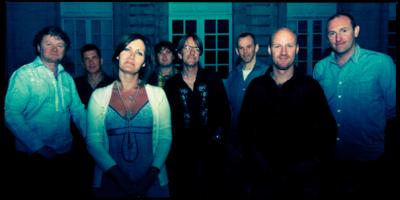
Speaking Truth to Power
In its series Future Academics Norient presents Bachelor or Master theses in musicology, ethnomusicology or popular music studies to promote young academics. This time Anne Haack from the Freie Universität Berlin (North American Studies) is focussing on the influence of the Civil Rights Movement and islam on arab hip hop in North America. At the same time Haack shows us a reflection on Arab hip hop after the Arab uprisings. (Read an excerpt below or see full thesis PDF here.)
Hip Hop has been since its beginning in the 1970's a voice of the unheard, marginalized and the ones suffering from poor social conditions. The first hip hop artists were Afro-Americans who spoke out about the dire circumstances they were experiencing in the ghetto's of New York. As a result, hip hop served, especially in the beginning, as a political tool, got people to stand up for their rights and enabled them to use hip hop as a peaceful outlet for their anger.
Despite hip hop's popularity and worldwide recognition nowadays, there is one fact that has been largely overlooked until now: Islam's strong influence on hip hop since its very beginnings. Islamic sects that formed in the U.S. during the Civil Rights Movement (CRM) in 1950–1980 had a strong presence in the Afro-American community and on the streets. It was them that would influence the very first hip hop artists later on.
In spite of this pioneering and continuing role, Islam as a cultural force in hip-hop is severely under-documented. In the most recent oversight, Jeff Chang's exhaustive hip-hop history «Can't Stop, Won't Stop» (Picador, 2005) pays only fleeting attention to the Muslim connection. Elsewhere in mainstream media, the Muslim connection is never spoken aloud, even in the middle of thorough analysis and journalism. Ted Swedenburg calls this «almost willful avoidance.» In this, there are parallels to the larger invisibility of black Muslims, who have been shut out of many conversations around the role of Islam in America (Naheem 2008, 303–04).
Reclaiming their identity through lyrical poetry and religion, several of the first hip hop artists in the States, like Rakim, Afrika Bambaataa, A Tribe Called Quest, Wu-Tang Clan, LL Cool J, KRS-One, Ice Cube or Chuck D from Public Enemy either joined the Islam influenced Five Percenters (Nation of Gods and Earths), the Nation of Islam (NOI) or the Sunni Muslim movement, reflecting their spirituality in their lyrics, their actions and their names.
Especially the language of the Five Percenters had a strong influence on early hip hop. Expressions like «peace», «dropping science» and «the bomb» came straight from the teaching lessons of the Five Percenters, with which students would battle each other. «G», which is now referenced as «Gangster», was initially dubbed with «God» from the Supreme Alphabet of the Five Percenters' founder Clarence 13X, also known as Allah (Knight, 2007, 178).
Marlex Marl feat. Craig G – Droppin' Science. Marley Marl was one of the premier producers of hip hop in hip hop's Golden Age producing tracks and records for Erik B. & Rakim, LL Cool J, Big Daddy Kane and many more.
Nowadays, rappers reference Islam through their lifestyle, their lyrics and blessings they speak out before a show. Erykah Badu opened her record The Healer in Arabic with «Alhamdulillah» (praise God), as well as Eve did in English on her album Eve of Destruction: «All Praise is due to Allah».
Due to hip hop's large commercialization since the 90's, the more conscious and rebellious hip hop1 is now found in countries, where marginalized youth speak up for their rights or where political and social conditions are at stake. Countries that in the recent years experienced political uprisings, such as Tunisia, Syria or Egypt are now the places where a new form of Arabic (Muslim) hip hop «speaks truth to power».
Syrian-American artist Omar Offendum supports his struggling brothers and sisters in Syria through his lyrics, concerts and peace ralleys.
Several hip hop tracks were created in the wake of the Arab uprisings (NPR 2011), and spread within hours over the internet. These tracks and the uprisings itself influenced new productions from Arab-American artists, so that Arab (Muslim) hip hop took a full spin from North America to the MENA2 states and back.
Canadian artist The Narcicyst documents the occurrences in Egypt.
The key artists from the U.S. and Canada, whose lyrics are being analyzed in the thesis, are Omar Offendum, The Narcicyst and Khaled M. All of them express their message in unique ways, either speaking up actively against oppression, using their lyrics as a real life documentation or conveying their message in a rather poetically, religious way. All of these three artists show key aspects of the roots of hip hop in their lyrics, such as parallels to speeches from the CRM, religious aspects in their lyrics similar to the wording from the Five Percenters, or using their voice to stand up for the rights of their oppressed brothers and sisters in Syria, Tunisia and Egypt, while at the same time reclaiming their identity as Arab-American artists.
The aim of this thesis is to show the influence of Islam, Islamic sects and the Civil Rights Movement in the roots of hip hop, drawing a connection between the foundation years in the 1970's, to how Arab-American (Muslim) hip hop artists keep these roots alive in their lyrics nowadays, in response to the Arab uprisings.
List of References
Biography
Published on April 12, 2015
Last updated on May 01, 2024
Topics
How did the internet change the power dynamic in global music? How does Egyptian hip hop attempt to articulate truth to power?
About Tunisian rappers risking their life to criticize politics and musicians affirming 21st century misery in order to push it into its dissolution.
From priests claiming to be able to shapeshift into an animal to Irish folk musicians attempting to unify Protestants and Catholics.


